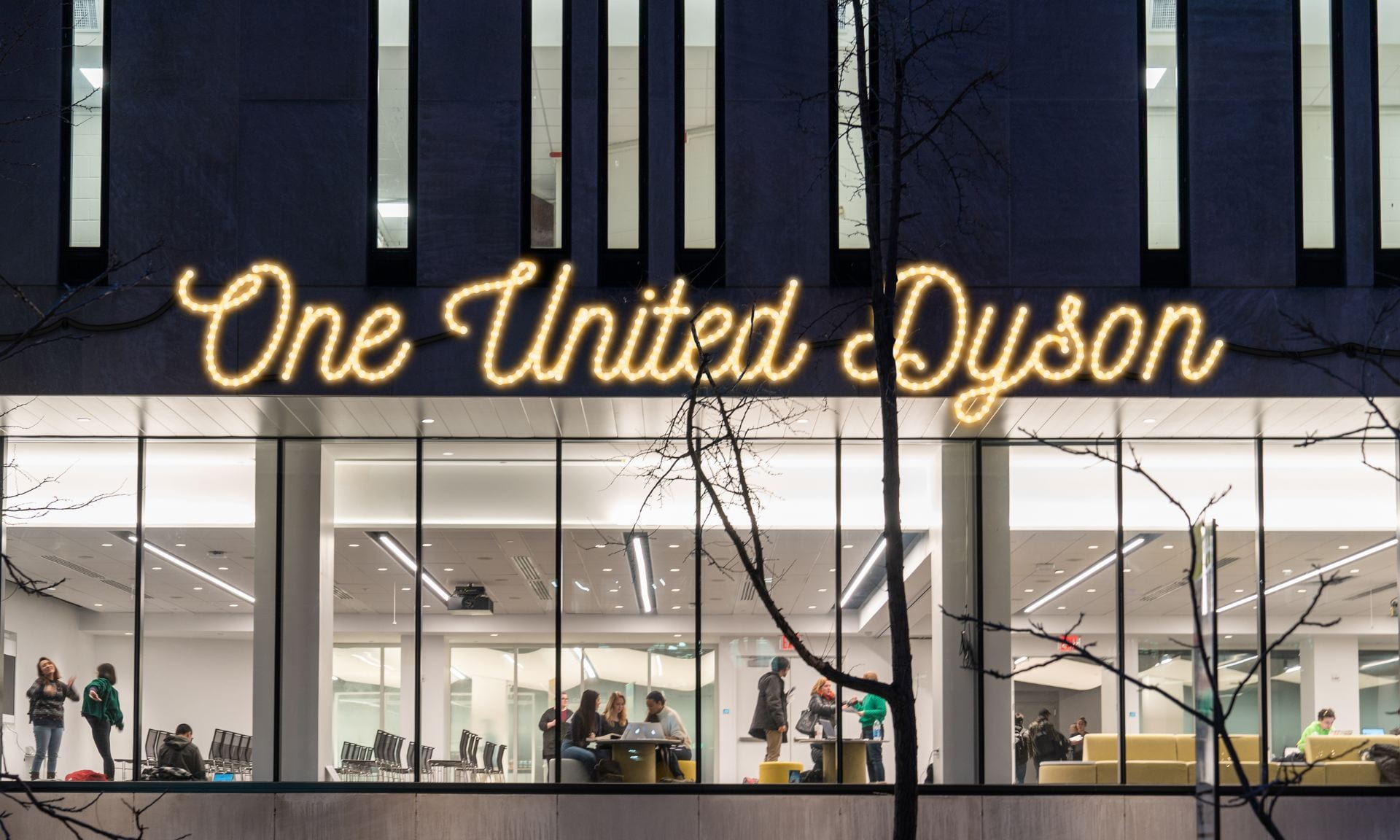
A liberal arts education prepares students to be flexible and see issues from a variety of perspectives. When the world began battling the coronavirus pandemic, the Dyson community turned to those characteristics to help in the fight. Here are some examples of support and relief efforts:
Procuring personal protective equipment (PPE)
To help safeguard health care professionals on the front lines, Pace University’s College of Health Professions and Dyson College donated more than 15,000 gloves, 250 standard face masks, more than 60 N95 masks, and nearly 50 disposable gown kits to the Westchester Medical Center and New York State.
“Healthcare workers are literally putting their lives on the line,” said Professor Marcy Kelly, PhD, chair of the Department of Biology on the New York City campus. “If [they] do not have PPE, they will most likely catch the virus. The more healthcare workers who are sick, the greater the impact on our ability to treat patients and keep the mortality rate down.”
Yutong Fan ’20, a returning student from China, at Pace to fulfill prerequisite courses for dental school, coordinated a separate donation. She secured supplies from family and friends in the medical field back home, which were disseminated to several local nursing homes.
Standing on the front line
Dr. James Gasperino ’89 is one of the many physicians, nurses, and healthcare professionals who emerged as a hero. He serves as chair, Department of Medicine; vice president for Critical Care, Perioperative, and Hospital Medicine; and associate chief medical officer at the Brooklyn Hospital Center, where intense struggles were chronicled by The New York Times.
Shaping policy
José Luis Castro ’88 is president and chief executive of Vital Strategies, a leading global public health organization founded to develop effective solutions to major challenges for rapid, large-scale impact.
The organization has partnered with the World Health Organization and Bloomberg Philanthropies on a new $40 million initiative to support global response focusing on Africa and vulnerable lower-income regions.
“Knowledge management is an integral part of our response work,” Castro, a member of the Dyson College Advisory Board, said. “Lessons learned from COVID-19 will be shared widely in hopes to prevent the next pandemic.”
Providing information
As the world shut itself in, a number of Dyson alumni worked to keep us all informed, including CNN business and politics correspondent Cristina Alesci ’01, Charles (Charlie) Gasparino ’85, a senior correspondent for Fox Business Network, and News 12 reporter Blaise Gomez ’06.
“This crisis is unlike anything I’ve covered in my 13-year career as a journalist,” Gomez said.
Inspiring joy and hope
While the news media provided the facts about COVID-19, others in the Dyson community worked to spread joy.
Aspiring lighting designer Matt Carino ’20, production and design for stage and screen, used his skills to create a lighted lawn display with the words “Together, Apart” at his family home in New Jersey.
“I wanted to send a simple, strong, and positive message,” Carino told The New York Times.
On-air radio personality Anna Zap (Zapotosky) ’02 , the cohost of The Anna and Raven Show on Connoisseur Media’s Star 99.9 Connecticut and Walk 97.5 Long Island, focused on providing vital information while still being entertaining. Zap and her cohost devoted more time to interacting directly with their audience via social media. They also started “Open for Business,” a daily segment featuring interviews with advertising clients about how they’re adapting and ways listeners can be supportive.
“In times of emergency . . . we need to work harder than ever to provide accurate info and familiarity, while staying true to our brand,” Zap said.
Making sense of it all
How do we deal with the stress of the pandemic? In what ways will it shape our future? Dyson professors Sally Dickerson, PhD; Anthony Mancini, PhD; and Todd Yarbrough, PhD, contributed their expertise to help answer these important questions in articles posted on Medium.com.
“In any crisis, each academic discipline has an important role to play by providing the social consciousness with the best available insights from their work,” Yarbrough said.

